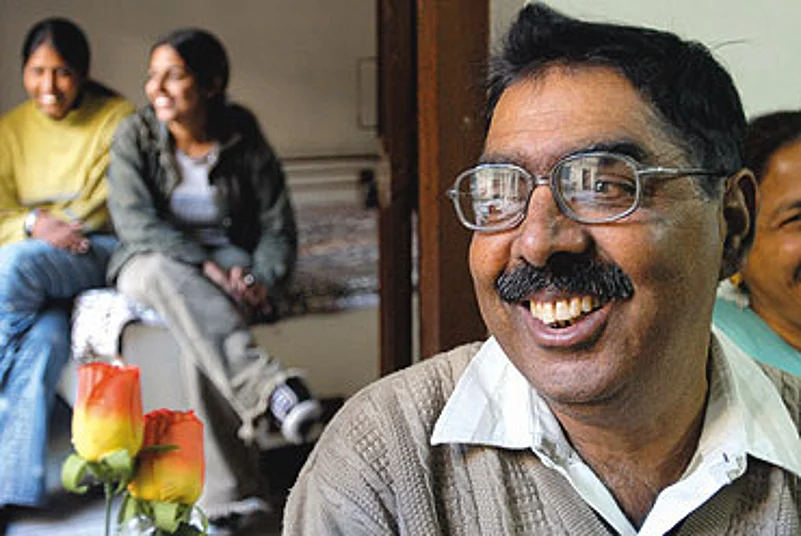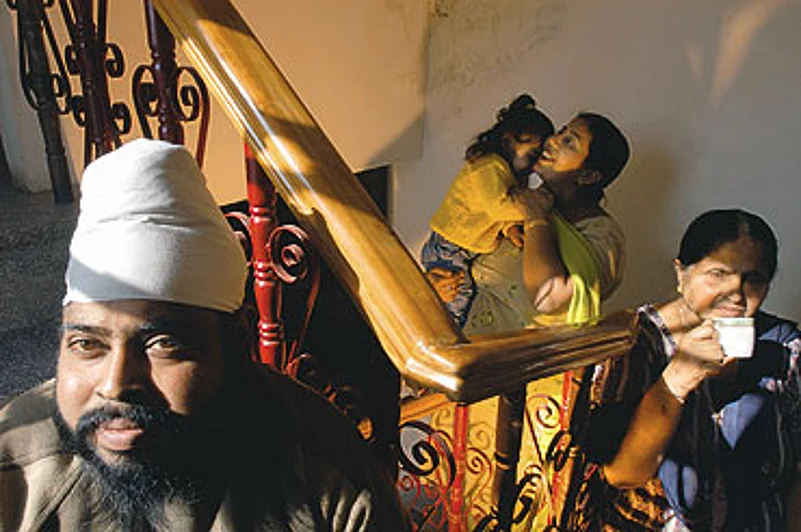
C.M. Chaddha: He went for a $10,000 package (kidney’s cost plus surgery) from Rasheed hospital in Lahore.
***
But almost everyone associated with the transplant business agrees that nine times out of ten, a non-related donor gives his or her kidney only for commercial considerations. Says Dr Kiranjit Kaur of the state health department who was chairman of the authorising committee at Patiala for two years: "I found that the donors were usually the poorest of the poor and there is little to suggest that money has not changed hands. This makes it extremely difficult to vouch for the genuineness of a donor."
The Punjab government has now constituted new ACs in each district headed by the deputy commissioner with representatives ofNGOs, doctors, the police and an advocate. But except for the committee at Patiala, most other district committees have so far been reluctant to give permission to unrelated donor transplants. Shiv Dalal Dhillon, the Patiala additional deputy commissioner who chairs the committee in that town, admitted, "Some doctors are scared and some officers too don’t want to get involved in this business, which is why too many permissions are not coming forth." According to him, even doctors are reluctant to recommend an unrelated donor transplant to the committee.
So, in the aftermath of the kidney scam, the Punjab Nephrologists Society resolved not to conduct any unrelated kidney donor transplants. Some hospitals, like the Christian Medical College Hospital at Ludhiana and the Kidney Hospital at Jalandhar, do not entertain such cases at all. Says Dr Navdeep Khaira, secretary of the society: "After the arrest of kidney specialists in 2003, about 20 patients have so far got unrelated kidney transplants done in Punjab and that too after they got permission from the HC. They had earlier been rejected by either the committees or the doctors."
Nephrologists also say they are wary because in cases involving illegal unrelated donors the recipient is often let off the hook. Says one specialist: "Instead of punishing only the doctors, the recipient as well as the donors too should be punished because according to the Act, they too are offenders. But the police only hound the doctors. So frankly, we are plain scared to take up such cases."
It is because of stringent laws in India that Pakistan hospitals have begun to fill the void. It is learnt that nephrologists even contacted hospitals in Punjab and Delhi and asked them to refer patients for transplants. Among the first to go was Chander Mohan Chaddha of Dehradun who had been on dialysis since last year after his kidneys failed. He arranged for a donor and managed to get a recommendation from a Jalandhar hospital for a transplant but the AC at Amritsar turned him down.
"A doctor then suggested I contact Rasheed hospital at Lahore and once I did that everything became easy," says Chaddha who opted for a $10,000 (about Rs 4.5 lakh) package which the hospital offers: this includes the cost of the kidney and a 21-day hospitalisation with one attendant. "It’s the best way to avoid legal hassles here," says he. So pleased is he with his treatment in Lahore that Chaddha has spread the word and sent other patients to Dr Rasheed. He even distributes the doctor’s visiting card to prospective patients. The realisation that he has done something illegal in his country has not quite dawned upon him.
Chaddha reveals that the hospital also waived off some of his outstanding dues as he had run out of money. It is a cut-throat business. The Pakistanis reportedly told him: "You just send us more patients, don’t bother about the money." Besides aggressive marketing through their growing network of patients and doctors, Lahore hospitals are now offering to speed up visa formalities for kidney patients. Gurwinder Singh Anand, also from Dehradun, is among those who spent an additional $250 for a medical visa which was arranged for him by Rasheed Hospital. The transplant now takes 15 days and the price has been upped to $13,000. Indeed, many patients act as "agents" of the Pakistani hospitals. For instance, Gurwinder placed advertisements in local newspapers about the Pakistani hospital. He claims to know 30 patients from India who have followed him to Lahore.

Gurwinder Singh Anand: Many patients like him act as "agents" of the hospitals. he says 30 patients have gone after him toLahore.
***
Payments are made in dollars and the Rs 4.5 lakh to Rs 5 lakh that a transplant costs in Lahore or Rawalpindi is not too forbidding for a middle class or rich Indian. Besides, with non-related donor transplants becoming increasingly difficult, Indian doctors have hiked their fees. Says Surjit Singh of Amritsar, who returned just last week from Lahore with his ailing father-in-law: "A top Amritsar doctor demanded Rs 20 lakh from us for doing the transplant in Delhi, on the ground that the cost is commensurate with the risks involved in doing such an operation."
Though most patients are going on medical visas, there is evidence to suggest that Pakistani hospitals have no qualms about operating on people with tourist visas. Chander Mohan, for instance, was initially asked to come to Nankana Sahib as a pilgrim and the hospital offered to pick him up from there. But he insisted on a medical visa.
The Pakistan kidney business sounds good if all goes well for the recipients and donors. But it’s when either develops complications that there is trouble. Still, for many the failure to get a kidney means certain death. The reason they take the easy road to Pakistan. Yet, a poor man selling his organs for a price throws open ethical questions. Whether the poor man is Pakistani or Indian.


























